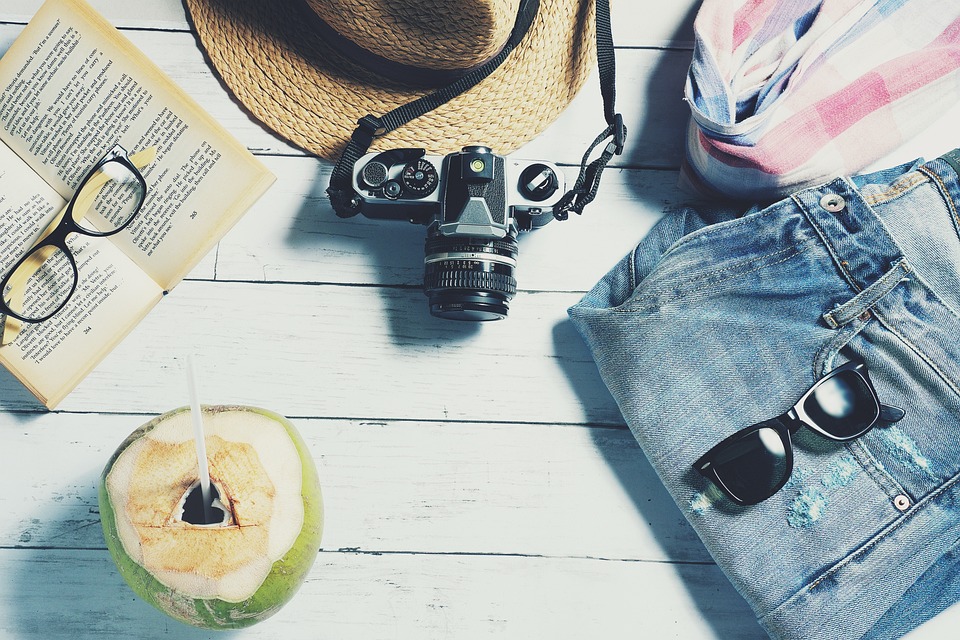Traveling can be one of life’s greatest pleasures, offering new experiences, cultures, and perspectives. However, it’s essential to prioritize safety while exploring unknown territories. From the basics of personal security to specific tips for various scenarios, this comprehensive guide will help you stay safe and make the most of your journeys.
1. Pre-Travel Preparation
Research Your Destination
How to Measure the Success of Your Digital Marketing Campaigns
Before you even book your ticket, take the time to research your destination. Familiarize yourself with local customs, traditions, and potential safety concerns. Websites like the U.S. Department of State, Centers for Disease Control and Prevention (CDC), and World Health Organization (WHO) offer valuable information on travel advisories, health notices, and security-related updates.
Health Preparations
Visit your healthcare provider to discuss your travel plans and ensure you’re up-to-date on all necessary vaccinations. Carry a basic first-aid kit tailored to your destination, including medications for common ailments like diarrhea, allergies, and pain. If you have prescribed medications, bring enough to last the entire trip, plus a few days’ surplus.
Important Documents
Make digital and physical copies of essential documents such as your passport, visa, travel insurance, itinerary, and emergency contact information. Store these copies separately from the originals. Upload scans to a secure cloud storage service for easy access.
2. Securing Accommodations
Choose Reputable Lodging
Always book accommodations through reputable platforms or agencies. Read reviews and verify the legitimacy of the rental or hotel. If you’re traveling alone, consider staying in accommodations known for their safety, such as larger hotels with 24-hour security.
Room Security
Upon arrival, inspect your room for any issues related to security. Lock windows and doors, and use additional security devices like portable door locks or door wedges if necessary. Familiarize yourself with emergency exit routes in case of fire or other emergencies.
3. Personal Safety Tips
Stay Connected
Keep friends or family members informed of your travel plans and check in regularly. Share your itinerary and any changes with someone you trust. Investing in a local SIM card or an international phone plan can keep you connected in case of emergencies.
Blend In
Avoid drawing attention to yourself as a tourist. Dress modestly and in accordance with local customs. Flashing expensive jewelry, gadgets, or large amounts of cash can make you a target for theft.
Be Alert to Your Surroundings
Stay aware of your environment, especially in crowded areas like markets, public transport, and tourist attractions. Avoid distractions like excessive smartphone use. If you feel uncomfortable or sense something amiss, trust your instincts and move to a safer location.
4. Safe Use of Transportation
Public Transportation
Public transport can be a cost-effective way to get around but comes with its own risks. Always keep your belongings close and be wary of pickpockets. If possible, travel during daylight hours and avoid empty buses or trains.
Taxis and Ride-Sharing
Use only licensed taxis or reputable ride-sharing services. Confirm the driver’s details before you get in, and sit in the back seat. Share your ride details with a friend or family member, and never disclose personal information to the driver.
Renting a Vehicle
If renting a vehicle, ensure you understand local driving laws and road conditions. Familiarize yourself with the vehicle’s safety features, and always wear seat belts. Plan your routes in advance and avoid driving at night in unfamiliar areas.
5. Financial Safety
Limit Cash and Cards
Carry only a small amount of cash and a single credit or debit card. Store additional funds and cards in a hotel safe or secure location. Use ATMs located in well-lit, busy areas, preferably inside banks.
Monitor Your Accounts
Periodically check your bank and credit card statements for any unauthorized transactions. Notify your bank of your travel plans to avoid any disruptions in service and quickly report lost or stolen cards.
6. Dining and Drinking Safety
Food Precautions
Foodborne illnesses can ruin your trip. Stick to bottled or purified water, and avoid ice cubes which may be made from tap water. Choose restaurants and food vendors with good hygiene practices. When in doubt, opt for cooked foods over raw or undercooked items.
Alcohol and Nightlife
If you plan to drink, do so in moderation and remain aware of your surroundings. Never leave your drink unattended and be cautious when accepting drinks from strangers. Stick to well-populated and reputable establishments.
7. Emergency Readiness
Local Emergency Numbers
Know the local emergency numbers for police, medical services, and fire departments. Save these numbers in your phone and carry a written copy. Familiarize yourself with the location of the nearest hospital or medical clinic.
Travel Insurance
Investing in comprehensive travel insurance can provide coverage for medical emergencies, trip cancellations, and lost belongings. Ensure you understand what is covered and carry the insurance details with you.
8. Cultural Awareness
Respect Local Customs
Understanding and respecting local customs can significantly enhance your safety. Research cultural norms and dress codes. For example, in some countries, public displays of affection are frowned upon or even illegal. Adhering to these customs shows respect and can prevent unwanted attention.
Language Basics
Learning a few basic phrases in the local language, such as “help,” “emergency,” and “thank you,” can be invaluable. Locals are often more willing to assist you if you make an effort to speak their language.
Conclusion
Traveling the world is a rewarding experience that can broaden your horizons, but staying safe should always be a priority. Through diligent preparation, situational awareness, and respect for local customs, you can minimize risks and enjoy your adventures with peace of mind. Keep these tips in mind, trust your instincts, and happy travels!


